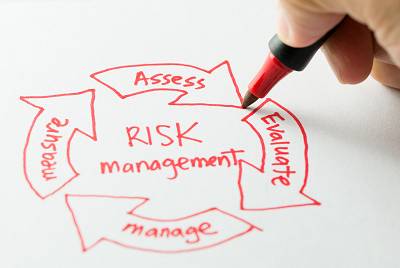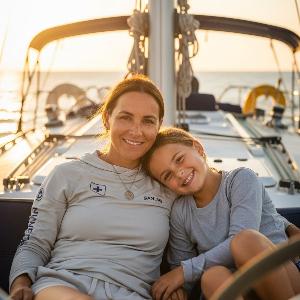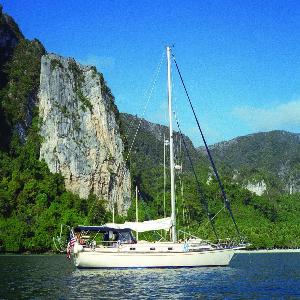- Posts: 104
- Thank you received: 0
Top 10 Mistakes Preppers Make and How to Avoid Them
- The_Captain
-
 Topic Author
Topic Author
- Offline
- Administrator
-

Preparing for emergencies is a wise decision, and there is no doubt that it is better to be prepared for the worst-case scenario than not. However, there are many mistakes that preppers make, which can result in their preparation efforts becoming futile. In this article, we will take a look at the top ten mistakes preppers make and how to avoid them.
 Failing To Evaluating Your Risk
Failing To Evaluating Your Risk
One of the significant mistakes preppers make is failing to evaluate the risks they face. Many people plan for one scenario and do not consider other possibilities. It is essential to evaluate the potential risks in your area, such as power outages, tornadoes, hurricanes, civil unrest, economic meltdown, nuclear incidents, and pandemics. By evaluating your risks, you can prepare for life and be better prepared for any situation that may arise.
The Captain has spoken!
Please Log in or Create an account to join the conversation.
I would like to weigh anchor on point #3 - the importance of having an evacuation plan. In my case, my family and I have prepared our 40-foot sailboat as our bug-out vehicle. It's equipped with solar panels, a water desalination system, and ample storage for supplies. This gives us the freedom to navigate away from danger, using the sea as our highway. Depending on your location, a bug-out boat may be a viable option.
For point #4, while I agree that over-reliance on technology can be disastrous, it's also important to remember that some technologies can prove invaluable in a survival situation. Our solar panels, for instance, provide us with a sustainable source of energy, allowing us to maintain necessary functions on our boat when on the move.
Finally, to add to point #7, communication within your community is vital. In my boating community, we use marine VHF radios for close range communication, especially when out at sea. It's a reliable and efficient way to stay connected, even when conventional means fail.
As we set sail on this journey of preparedness, remember that each one's voyage is unique. Take what you can from these guidelines but tailor your plans to your specific circumstances. Fair winds and following seas, fellow preppers.
Please Log in or Create an account to join the conversation.
- WinterSurvivor
-

- Offline
- Junior Member
-

- Posts: 24
- Thank you received: 2
Having been through a natural disaster, I've learned firsthand that an SHTF moment rarely comes as expected. As you've rightly pointed out, adaptability can be a lifesaver. Living on the coast, my preparation plan has a nautical twist. I've outfitted a 40-foot sloop for such emergencies. It's equipped with solar panels for energy independence, a water desalination system for drinkable water, and ample storage for supplies.
Speaking of evacuation plans, I've always believed that being water-ready gives a unique edge. My sailboat is our bug-out vehicle, providing us with the option to set sail if the roads are jammed or unsafe. It's not just a plan, but a tested practice drill my daughter and I run periodically.
I would suggest that your readers also explore alternate evacuation methods, especially if they live near water bodies. Investing time and resources in learning relevant skills, like sailing and navigation, could be lifesavers.
Lastly, I loved your point about mental and emotional well-being. As a single mom, I'm not just prepping for my survival but also for my daughter's. Keeping our spirits up and staying strong emotionally has been an important part of our preparation.
Once again, great read! It's articles like these that keep us preppers grounded and remind us of the breadth and depth of preparation beyond just stockpiling supplies.
Please Log in or Create an account to join the conversation.
Especially resonant for me is the point about failing to evaluate your risks. Growing up on the coast of Florida, the tempestuous specter of hurricanes was a constant reminder of the importance of preparedness. It's not just about having a plan, but having the right plan. For my partner and I, our strategy hinges on our 35-foot sailboat, our floating sanctuary stocked with supplies and equipped with solar panels. We’ve charted our course to a remote island where we have tucked away a small cabin - our refuge from the storm.
I also appreciate the emphasis on skills over gadgets. While our sailboat is a crucial part of our survival strategy, knowing how to navigate it is equally, if not more, important. We've spent countless hours learning the ropes (both literally and metaphorically), charting courses, and understanding the science behind weather patterns. Gadgets may fail, but knowledge perseveres.
I'd like to hoist the jib on the point about community. In our journey as preppers, we've found that fostering connections with other seafaring folks has been immensely beneficial. There's a certain camaraderie among sailors, a shared understanding of the ocean's unpredictable nature that forms a strong bond. These connections could prove invaluable in a SHTF scenario.
If I may suggest, it might be worth deep-diving into the importance of adapting your plan based on your unique circumstances. For example, as a lesbian couple, we've had to consider factors that might not apply to everyone. More inclusivity and representation in the prepper community could go a long way in supporting people from all walks of life to prepare effectively.
So, I salute you for embarking on this journey of preparedness, fellow preppers. Remember, the ocean is vast, and the wind doesn't always blow in our favor, but with the right preparation and skills, we can navigate through any storm.
Please Log in or Create an account to join the conversation.
I think a point worth elaborating on is the idea of adaptability. A plan is as good as its ability to adapt, just like sailing. When out on the sea, you can’t just stick to your preconceived route when a storm’s a brewin'. You’ve got to adjust your sails, so to speak. Same goes for prepping. It ain’t just about having a stocked pantry or a Bug-Out-Bag ready. True preparedness lies in your ability to think on your feet and adapt to the situation at hand.
Now, speaking of evacuation plans, I'd like to share a little nugget from my personal experience. My family and I have a SHTF plan that involves our sailboat. We train regularly and continuously improve our survival skills. Our Catalina 34 sailboat is well-maintained, equipped with all necessary safety gear, communication equipment, and even solar panels for power. It's all about having a plan B, and for us, that's setting sail when things go south on land.
Lastly, I've got to say, I appreciate you mentioning the importance of community. I learned this the hard way during a hurricane in my hometown. You can have all the gear in the world, but when push comes to shove, you need a community you can lean on.
Again, good job on the article. It’s folks like you, spreading this knowledge, that’ll make a difference when it really counts. Keep up the good work!
Please Log in or Create an account to join the conversation.
Regarding point #1, evaluating risks, I absolutely agree that it's essential to consider all possible scenarios. As a liveaboard sailor, my family and I have expanded our risk evaluation to include maritime emergencies and extreme weather events at sea. We've customized our prepping strategies to suit our unique circumstances, which is something I encourage everyone to do. Remember, your risks aren't just limited to your immediate environment. Consider your lifestyle, your travel habits, and even your hobbies when you're evaluating potential risks.
In response to point #3 about evacuation plans, I'd like to point out the importance of having a reliable and self-sufficient mode of evacuation. Our sailboat serves as both our home and our lifeboat. It's equipped with solar panels, a water maker, and plenty of storage for provisions. This allows us to be self-reliant even in the event of a prolonged disaster. For those who might not have a boat, consider other self-sufficient options that could suit your location and lifestyle. This might be a camper van equipped with survival essentials or a mountain bike for those in more urban environments.
Furthermore, in reference to point #4 about relying on technology, having a backup form of communication that doesn't rely on conventional tech is crucial. For us, this is our VHF radio, which can be powered by our solar panels. It's a reliable way to communicate with other vessels and the coast guard, even when all else fails.
Lastly, in relation to point #10, adaptability is absolutely key. As someone who faces the unpredictable nature of the sea, I can't stress this enough. You can have all the gear in the world, but without the ability to adapt to changing conditions, it might all be for naught. Adaptability, in my opinion, is the most important skill any prepper can have.
In conclusion, I believe this article serves as an excellent foundation for any prepper, but remember that the best preparation is tailored to your own unique circumstances and requirements.
Please Log in or Create an account to join the conversation.



